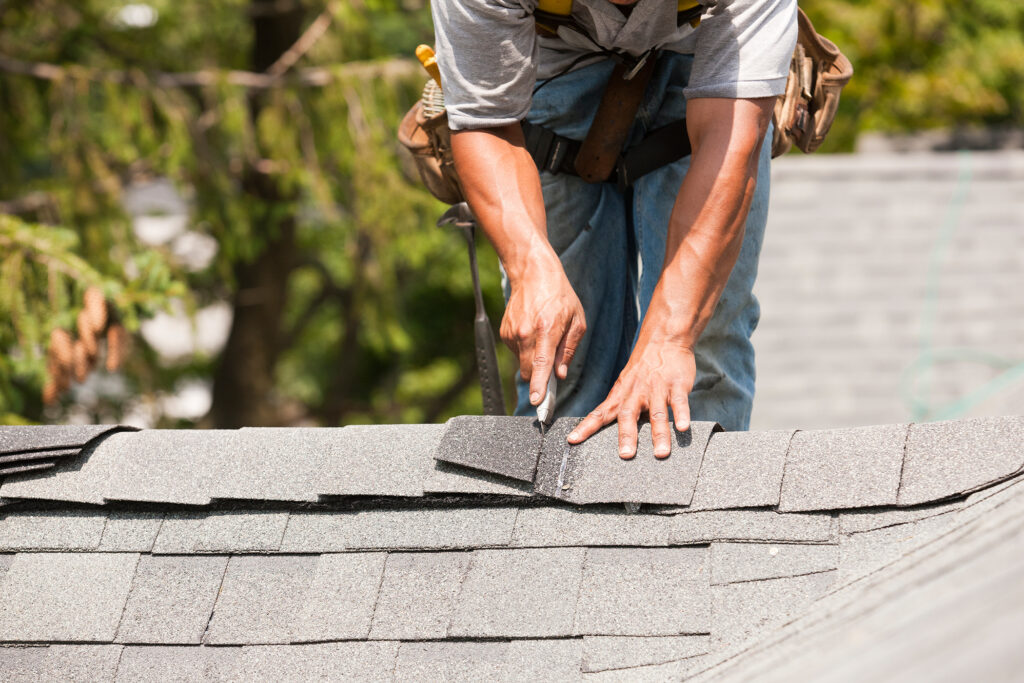Replacing your roof is a significant home improvement project that requires careful planning and consideration.
Your roof plays a crucial role in protecting your home and its contents from the elements, so making the right decisions during the replacement process is essential.
Here are the top considerations to keep in mind when replacing your roof:
Roofing Material
Choosing the right roofing material is one of the most critical decisions you’ll make when replacing your roof.
There are several options available, including asphalt shingles, metal roofing, wood shakes, and more. Understanding your local climate is also crucial when choosing a roofing material. In warmer regions like Orlando, homeowners often lean towards tile roofing in Orlando, for its durability and ability to withstand high temperatures.
Each material has its own set of advantages and disadvantages in terms of durability, cost, and aesthetics.
Consider your budget, climate, and personal preferences when selecting the roofing material that suits your needs best.
Budget
Roof replacements can be a significant expense, so it’s essential to establish a clear budget before starting the project.
Get quotes from multiple roofing contractors — such as this roofing company in Corpus Christi — to get a better idea of the cost involved.
Keep in mind that the cheapest option may not always be the best in terms of quality and longevity, so weigh your options carefully.
Contractor Selection
Choosing the right roofing contractor is crucial to the success of your roof replacement project.
Look for licensed, insured, and experienced professionals who can provide references from past clients.
A reputable contractor will ensure the job is done correctly, using quality materials and adhering to safety standards.
Roofing Warranty
When selecting roofing materials, inquire about the warranty offered by the manufacturer. Warranties can vary significantly, so be sure to understand the terms and coverage.
A more extended warranty can provide peace of mind and potentially save you money on repairs in the future.
Roof Ventilation
Proper roof ventilation is essential for maintaining a comfortable and energy-efficient home.
Ensure that your new roof includes adequate ventilation to prevent moisture buildup and heat buildup in the attic.
A well-ventilated roof can extend the life of your roofing materials and help reduce energy costs.

Roof Slope and Pitch
The slope and pitch of your roof can impact your choice of roofing material and the overall cost of the project.
Steeper roofs may require more materials and labor, making them more expensive to replace.
Additionally, certain roofing materials are better suited for specific roof slopes, so consult with your contractor to find the right fit.
Energy Efficiency
Consider the energy efficiency of your roofing materials.
Some options, like metal and reflective roofing, can help reduce cooling costs by reflecting more sunlight and heat away from your home.
An energy-efficient roof can also be an environmentally responsible choice.
Local Building Codes
Check with your local building department to ensure that your roof replacement project complies with all local building codes and regulations.
Failure to do so can result in costly delays and fines. A professional roofing contractor will typically be familiar with these codes and handle the necessary permits.
Roof Design and Aesthetics
The design and aesthetics of your roof can significantly impact your home’s curb appeal. Think about the architectural style of your home and choose roofing materials and colors that complement it.
Some neighborhoods or homeowners’ associations may have specific rules or guidelines regarding roofing aesthetics, so be sure to check those as well.
Gutters and Downspouts
While replacing your roof, it’s an excellent opportunity to inspect and, if necessary, replace your gutters and downspouts. Proper drainage is essential to prevent water damage to your home’s foundation and landscaping.
Replacing your roof is a significant investment that requires careful consideration of various factors. Choosing the right roofing material, setting a budget, selecting a reputable contractor, and ensuring compliance with local building codes are all critical steps in the process.
By addressing these considerations, you can ensure a successful roof replacement that enhances your home’s value, energy efficiency, and overall protection.






